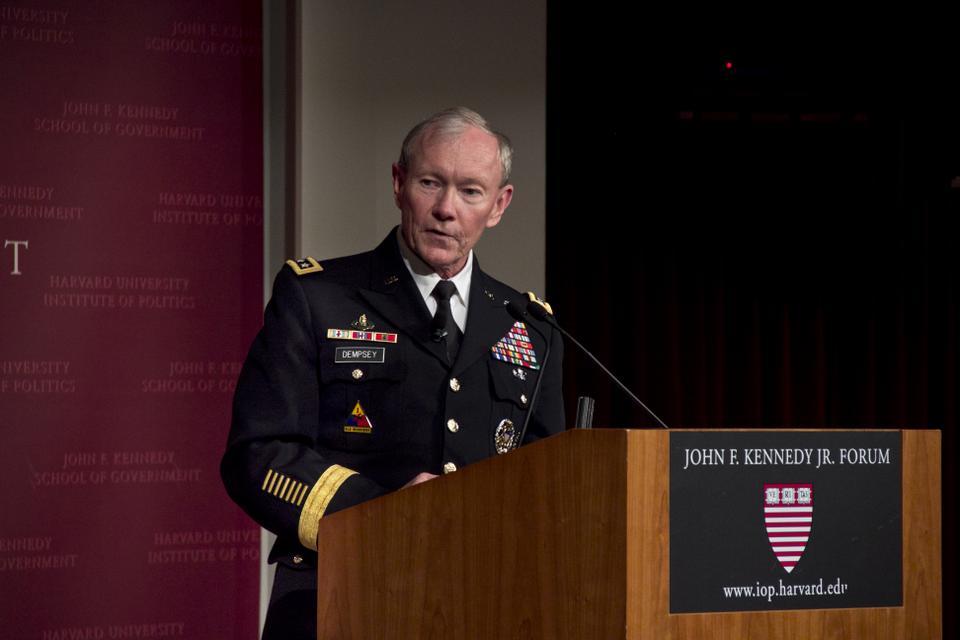
News
Summers Will Not Finish Semester of Teaching as Harvard Investigates Epstein Ties

News
Harvard College Students Report Favoring Divestment from Israel in HUA Survey

News
‘He Should Resign’: Harvard Undergrads Take Hard Line Against Summers Over Epstein Scandal

News
Harvard To Launch New Investigation Into Epstein’s Ties to Summers, Other University Affiliates

News
Harvard Students To Vote on Divestment From Israel in Inaugural HUA Election Survey
Chairman of the Joint Chiefs of Staff Discusses Security

General Martin E. Dempsey, the chairman of the Joint Chiefs of Staff, called the current state of global security one defined by a paradox—with both increasing levels of geopolitical stability and a diffusion of access to powerful weapons—in an address at the Institute of Politics Thursday night.
“I believe I am chairman at a time that seems less dangerous, but is actually more dangerous,” Dempsey said. “Although geopolitical trends are ushering in greater levels of peace and stability worldwide, destructive technologies are available to a wider and more disparate group of adversaries.”
Dempsey’s words were timely—at around 6:45 p.m., two members of Dempsey’s staff left the JFK Forum. According to an IOP volunteer who wished to remain anonymous, the staff members were responding to the news that North Korea had just launched a long-range rocket in defiance of repeated international protests. The rocket broke apart shortly after blastoff. According to the BBC, North Korean officials have stated that the rocket launch was intended to place a weather observation satellite in orbit, but the United States and allied nations suspect that the launch was a cover for a long-range missile test, which would be a necessary technology for a developing nuclear weapons program.
In his presentation, Dempsey addressed many of the concerns over global security that are exemplified by events such as the recent North Korean rocket launch.
“More people have the ability to harm us or to deny us the ability to act than at any time in my life,” Dempsey said.
But he insisted that he did not want to instill a sense of “doom and gloom” in his audience.
“There is one idea I should purge from your mind tonight—and that is that we are a nation in decline,” Dempsey said.
“Look, we’ve still got a lot of tricks up or sleeves,” he continued. “But the message is that the margin of error is growing smaller and smaller.”
During the talk, Dempsey outlined his plan for the future of the United States military.
“The force we are building really is a force that can win any conflict, repel any threat, and protect our interests,” he said. “With the pace of the development of the threats I described, I believe this force needs to be in place by 2020.”
Despite the grave nature of his discussion, Dempsey remained optimistic. Alluding to his time as an English professor at the U.S. Military Academy at West Point, he quoted the opening lines of Charles Dickens’ “A Tale of Two Cities”: “It was the best of times, it was the worst of times.”
Echoing Dickens’ sentiment, General Dempsey continued, “So this is the security paradox that we face today: As counterintuitive combination of peace and the potential for violence.”
Want to keep up with breaking news? Subscribe to our email newsletter.
